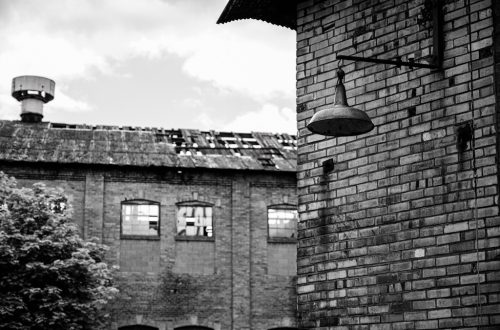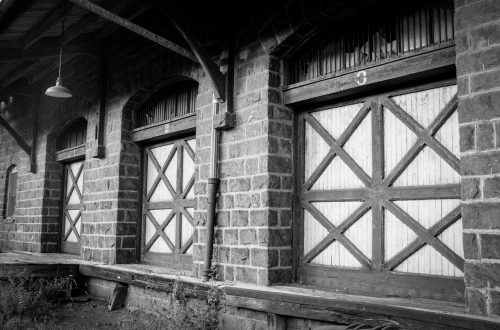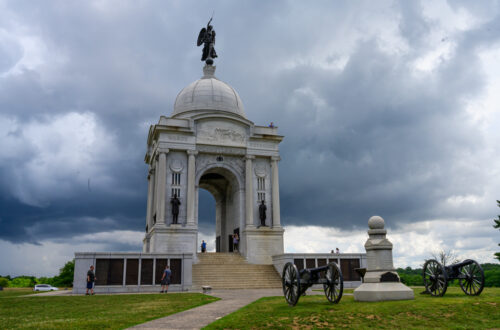A Local Novel by a Local Author: “The Day Must Dawn”
 One of the main characters in “The Day Must Dawn” by Agnes Sligh Turnbull watches Colonel William Crawford burn at the stake while Simon Girty laughs. That scene isn’t the only dramatic one in this novel about about a fictional family living in colonial Hannastown, Pennsylvania. On July 13, 1782, as the American Revolution ended, Native Americans allied with the British burned the town and its crops while its residents hid in the adjacent fort.
One of the main characters in “The Day Must Dawn” by Agnes Sligh Turnbull watches Colonel William Crawford burn at the stake while Simon Girty laughs. That scene isn’t the only dramatic one in this novel about about a fictional family living in colonial Hannastown, Pennsylvania. On July 13, 1782, as the American Revolution ended, Native Americans allied with the British burned the town and its crops while its residents hid in the adjacent fort.
I found some good biographical information on Turnbull at Peter Oresick’s The Pittsburgh Novel and Goodreads. However, one of the librarians at Saint Vincent College introduced me to Turnbull in the late 1990’s when I worked there as a student.
Turnbull was born and raised (and is now buried) in New Alexandria, which is about five miles from Hannastown and about ten miles from Saint Vincent in Latrobe. She graduated from the school later named Indiana University of Pennsylvania (IUP). (IUP used to have a building named “Turnbull Hall” in honor of her. My sister, a double-graduate of IUP, told me that the school tore Turnbull Hall down a few years ago.)
Turnbull moved to New Jersey with her husband before she became a best-selling author in the mid-twentieth century. She set several of her novels in Western Pennsylvania. She dedicated “The Day Must Dawn” “To the residents of Westmoreland County.” At the beginning of it, she wrote: “When I was a small girl, driving with my parents from the village of New Alexandria in Western Pennsylvania to Greensburg, the county seat, I always used to beg them to stop the horse at one spot in the road and tell me again about Hannastown-that-was-burned-by-the-Indians.”
Hannastown was the first county seat west of the Alleghenies and the first of Westmoreland County. In “The Day Must Dawn,” the town loses a significant portion of its able-bodied fighting men in the Crawford Expedition. (William Crawford, the leader of the expedition, previously founded Fort Crawford in Parnassus, New Kensington.) The Native Americans and British attack and burn Hannastown less than a year later. Hannastown is currently a historical site / museum. (As I mention at the end of this entry, paperback copies of “The Day Must Dawn” are sold at the museum shop.)
“The Day Must Dawn” is actually a romance. Hugh and Violet, both Scotch-Irish Presbyterians, become foster brother and sister to each other after Hugh loses his parents in the same raid that killed Violet’s brothers. Hugh later decides that he must join a colonial militia and prove himself to be a man before he can announce his intention to marry Violet. In the meantime, Violet’s mother plans to marry Violet (her only living child) off to a lawyer who will take her to an easier life in Philadelphia. (Or what passed for easier in that era. One tenth of the population of Philadelphia perished during the Yellow Fever Epidemic of 1793.)
I sometimes romanticize colonial life. In 1782, Pennsylvania was the frontier, and life was cruel and primitive. Parents are admonished by neighbors not to grow too fond of their children, lest they tempt fate. Several children die in the story. Violet’s father mocks Violet and her mother for bathing in the winter, and boosts about the long period of time since his last bath. (I suspect that this may be one reason why the spark has apparently died in the marriage of Violet’s parents.) Violet learns that her mother ate off of plates decorated with flowers during her own childhood in Philadelphia, and says that she would die happy if she herself could eat off of such a plate just once. The family’s prized possessions are three books (a Bible and two volumes of Shakespeare) and a mirror.
Simon Girty shows his sympathy for the Native Americans. (I love that Simon Girty appears in this story! Here is my blog post about him.) In one scene, Girty buys Hugh a drink in a Hannastown tavern. Girty proceeds to tell Hugh why he supports the actions of local Native American chiefs. (Girty also sees Crawford sitting on the other side of the bar, and talks about his dislike of Crawford.) Later, after Girty and Hugh both ride in the Squaw Campaign, Girty tells Hugh how the outcome of the campaign (several dead Native American women) disgusts him. Girty defects from the Pennsylvania militia and joins the British.
“The Day Must Dawn” has been out of print by The Macmillan Company for years. However, the Westmoreland County Historical Society sells a paperback reprint of this book, through the Museum Shop at Historic Hannastown. I bought my own hardback copy used on Amazon.



One Comment
Pingback: